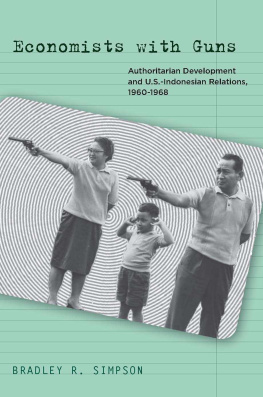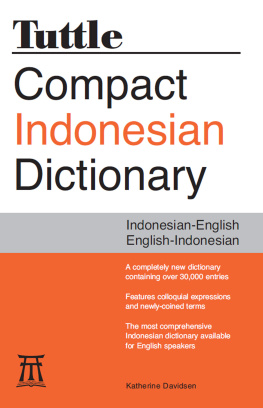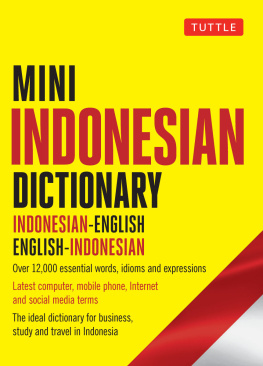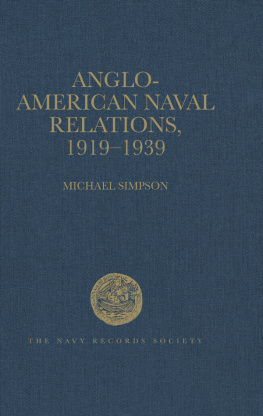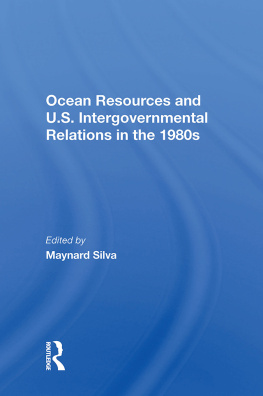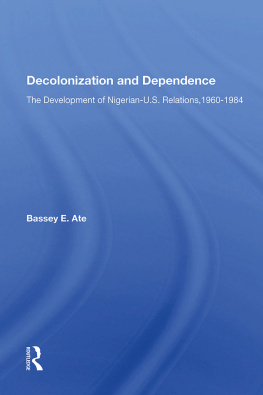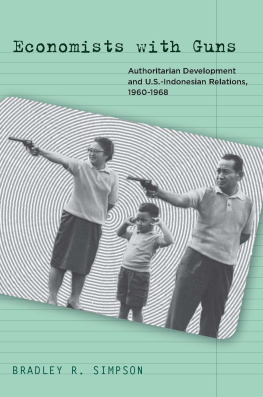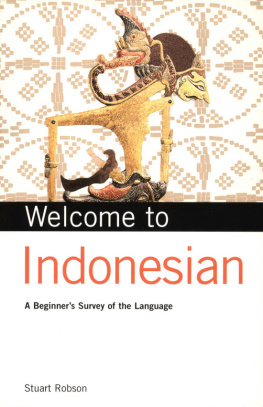Bradley Simpson - Economists with Guns: Authoritarian Development and U.S.-Indonesian Relations, 1960-1968
Here you can read online Bradley Simpson - Economists with Guns: Authoritarian Development and U.S.-Indonesian Relations, 1960-1968 full text of the book (entire story) in english for free. Download pdf and epub, get meaning, cover and reviews about this ebook. year: 2008, publisher: Stanford University Press, genre: Politics. Description of the work, (preface) as well as reviews are available. Best literature library LitArk.com created for fans of good reading and offers a wide selection of genres:
Romance novel
Science fiction
Adventure
Detective
Science
History
Home and family
Prose
Art
Politics
Computer
Non-fiction
Religion
Business
Children
Humor
Choose a favorite category and find really read worthwhile books. Enjoy immersion in the world of imagination, feel the emotions of the characters or learn something new for yourself, make an fascinating discovery.
- Book:Economists with Guns: Authoritarian Development and U.S.-Indonesian Relations, 1960-1968
- Author:
- Publisher:Stanford University Press
- Genre:
- Year:2008
- Rating:5 / 5
- Favourites:Add to favourites
- Your mark:
- 100
- 1
- 2
- 3
- 4
- 5
Economists with Guns: Authoritarian Development and U.S.-Indonesian Relations, 1960-1968: summary, description and annotation
We offer to read an annotation, description, summary or preface (depends on what the author of the book "Economists with Guns: Authoritarian Development and U.S.-Indonesian Relations, 1960-1968" wrote himself). If you haven't found the necessary information about the book — write in the comments, we will try to find it.
Bradley Simpson: author's other books
Who wrote Economists with Guns: Authoritarian Development and U.S.-Indonesian Relations, 1960-1968? Find out the surname, the name of the author of the book and a list of all author's works by series.
Economists with Guns: Authoritarian Development and U.S.-Indonesian Relations, 1960-1968 — read online for free the complete book (whole text) full work
Below is the text of the book, divided by pages. System saving the place of the last page read, allows you to conveniently read the book "Economists with Guns: Authoritarian Development and U.S.-Indonesian Relations, 1960-1968" online for free, without having to search again every time where you left off. Put a bookmark, and you can go to the page where you finished reading at any time.
Font size:
Interval:
Bookmark:

Stanford University Press
Stanford, California
2008 by the Board of Trustees of the
Leland Stanford Junior University.
All rights reserved.
No part of this book may be reproduced or transmitted in any form or by any means, electronic or mechanical, including photocopying and recording, or in any information storage or retrieval system without the prior written permission of Stanford University Press.
Printed in the United States of America
on acid-free, archival-quality paper.
Library of Congress Cataloging-in-Publication Data
Simpson, Bradley R. (Bradley Robert)
Economists with guns : authoritarian development and U.S.-Indonesian relations, 19601968 / Bradley R. Simpson.
p. cm.
Includes bibliographical references and index.
9780804779524
1. United StatesForeign relationsIndonesia. 2. IndonesiaForeign relationsUnited States. 3. IndonesiaPolitics and government19501966. 4. IndonesiaPolitics and government19661998.
5. United StatesForeign relations19451989. 6. AuthoritarianismIndonesiaHistory20th century. I. Title.
E183.8.15S56 2008
327.73059809046dc22
2007045246
Typeset by Classic Typography in 10/14 Janson
The writing of ones first book, while agonizingly lonely, is the product of countless acts of kindness large and small. I have been helped along the way by innumerable archivists and staff, teachers, mentors, friends, and family, many of them immersed not in the world of academia but in movements for human rights and social justice in the United States, Indonesia, and East Timor.
This project grew out of my nave shock as a college student upon discovering that the United States had supported the 1975 Indonesian invasion of East Timor, a tiny island nation that most Americans and I had never heard of. This discovery outraged me as a citizen and intrigued me as a historian, sending me on a search for origins, in this case of the U.S. alliance with the authoritarian regime of Suharto. My research and writing have been guided by the belief that historians are not mere scribes but active participants in shaping collective memory, including of events that most would wish to sweep under the carpet, incompatible as they are with the narrative of American exceptionalism in foreign policy.
I have piled up many debts along the way, especially to the archival staffs of the Lyndon B. Johnson Presidential Library, the John F. Kennedy Presidential Library, the National Archives and Records Administration, the Library of Congress Manuscript Division, the Ford Foundation Archives, the Rockefeller Archives Foundation, the AFL-CIO Archives, the Hoover Institution Archives, and the National Archives of the United Kingdom. I am grateful to the Rockefeller Archives Foundation, the John F. Kennedy Presidential Library, Northwestern University, Idaho State University, and the University of Maryland, Baltimore County, for providing funding to facilitate my research and writing.
I owe a special debt to those who read or commented on all or part of this manuscript and on the conference papers from which they were derived and who helped to get the book to press: John Roosa, David Schmitz, Mark Bradley, David Painter, Anne Foster, Nick Cullather, Robert McMahon, Matthew Jones, Michael Latham, Joe Nevins, Gwyn Sundell, Bob Buzzanco, Christopher Jesperson, Randall Woods, and Baskara T. Wardaya, S.J. My mentors at Northwestern UniversityBruce Cumings, Laura Hein, Michael Sherry, and Jeffrey Wintersprovided models of engaged scholarship and support along the way. Muriel Bell at Stanford University Press took a chance on this manuscript at an early stage, for which I am forever grateful, and Joa Soarez and Kirsten Oster helped shepherd the manuscript to publication.
Friends and family, of course, bear the brunt of the journey from graduate school to dissertation to first book. My family has offered untiring encouragementdoubtless tempered by reliefwhile friends have kept me grounded and ever conscious of the need to connect scholarly inquiry to the ongoing efforts of those engaged in grassroots movements. My greatest debt is to Kristinwife, best friend, and confidantwhose support has eased the way and whose commitment to peace and social justice is a daily inspiration. All errors of fact or interpretation are my own.
On the morning of October 1, 1965, Lyndon Johnsons White House received a terse situation report from the Central Intelligence Agency (CIA): A power move which may have far reaching implications is underway in Jakarta.
Forty years later, millions of Indonesians still carry the scars of the night that changed their countrys historical trajectory. But they are mostly suppressed scars, prevented from healing by a regime that between 1966 and 1998 used the September 30th Movement and anti-Communism as a master narrative to justify the dominant role of the Indonesian armed forces (TNI) in the nations life, the circumscription of political parties, Islam, and civil society, and the ruthless suppression of dissent.
Since Suhartos downfall in 1998, Indonesia has experienced myriad problems, including economic instability, environmental degradation, state violence, corruption, religious conflict, and a recrudescent Islamic radicalism, which is locally rooted but has strong transnational links. Although not spawned by the New Order, each of these dynamics was exacerbated, in some cases exponentially, by the political and economic edifice that the Suharto regime created to sustain and legitimize its grip on power. The persistence of these problems in Indonesias wobbly democratic transition has forced a long overdue reassessment of virtually all aspects of the New Order period by both Indonesians and foreign observers. The unified coherence of Suhartos New Order, one scholar recently observed, has been thoroughly discredited, as economic stagnation and growing discord undermined its core themes of stability and state-managed development. Such a reassessment has been a long time coming. Between 1966 and 1998, as the Indonesian government pursued a deeply flawed authoritarian development model, the United States and other powerful governments, social scientists, and international institutions cheered Indonesias purported success while muting criticism of the Suharto regimes appalling corruption and abysmal human rights record as the regrettable price of stability and growth. As in Brazil, South Korea, Iran, and many other countries during the Cold War, Indonesia during the Suharto period pursued a strategy of what might be termed military modernization, in which the armed forces asserted for themselves a dominant political role legitimized by their commitment to economic and political development.
Such commitments did not spring out of the political ether, nor were they the product of purely local or national historical conflicts. Rather, a complex constellation of national and international political and economic forces lay the foundations for and encouraged the emergence in the mid-1960s of a military-led regime in Indonesia committed to modernization. These forces included the U.S. and other Western governments, which provided military and economic assistance; philanthropic foundations, which trained economists and military officers in management and administration; international financial institutions such as the International Monetary Fund (IMF) and the World Bank, which promoted early variants of what would later be called structural adjustment; and social scientists, who deployed theory to account for and legitimize the growing political and economic role of the military in the development process, not just in Indonesia but throughout the so-called third world.
Font size:
Interval:
Bookmark:
Similar books «Economists with Guns: Authoritarian Development and U.S.-Indonesian Relations, 1960-1968»
Look at similar books to Economists with Guns: Authoritarian Development and U.S.-Indonesian Relations, 1960-1968. We have selected literature similar in name and meaning in the hope of providing readers with more options to find new, interesting, not yet read works.
Discussion, reviews of the book Economists with Guns: Authoritarian Development and U.S.-Indonesian Relations, 1960-1968 and just readers' own opinions. Leave your comments, write what you think about the work, its meaning or the main characters. Specify what exactly you liked and what you didn't like, and why you think so.

